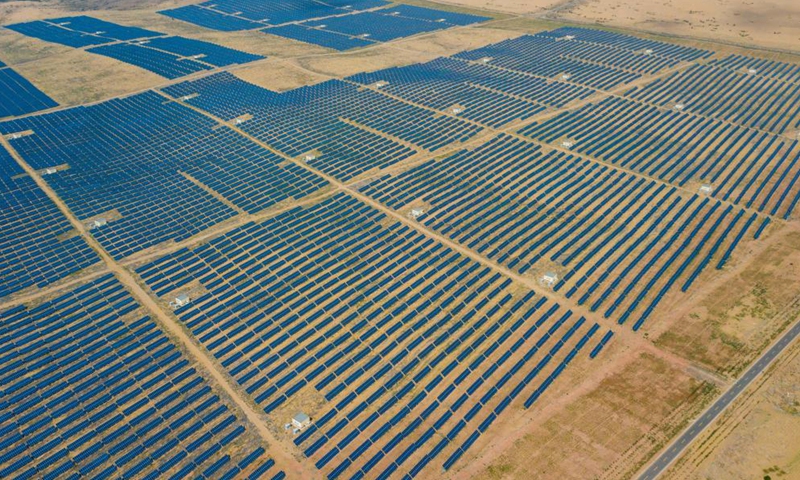China's national carbon market to start trading in July with 2,200 companies involved, official says

Aerial photo taken on July 11, 2018 shows a photovoltaic power base in Kubuqi Desert of north China's Inner Mongolia Autonomous Region.(Photo: Xinhua)
China's national carbon market, which will become the world's largest emissions trading system, will start trading in July, a Chinese government official said on Wednesday during a press conference.
"Currently, relevant construction tasks have been completed. Everything is ready," said Zhao Yingmin, vice minister of the Ministry of Ecology and Environment.
Zhao didn’t disclose the exact time when the carbon market will be launched. But the news that China's national carbon trading market will be launched on Friday is NOT TRUE, Zhao told the Global Times on Wednesday.
In the initial stage, the first batch of carbon emission allowances will be given to key companies in the electricity industry. About 2,200 companies with around 4 billion tons of carbon emissions will be included in the carbon trade market.
Zhao also said that China will push launch of carbon trade provisional regulations as soon as possible.
This marks the final implementation of China's national carbon trade market after the country tested carbon credit trading at seven Chinese provinces and cities including Shanghai, Beijing, Hubei and Tianjin for years since 2011.This also comes at a crucial time as China has proposed a goal to reach carbon emissions peak by 2030.
According to a previous statement by the Shanghai Environment and Energy Exchange, listed transactions will be for 100,000 tons of carbon dioxide equivalent or less, and price moves will be within 10% of the prior day's close.
Data provider Refinitive had predicted earlier that carbon prices will trade at about 40 yuan ($6.2) a ton this year and rise to about 160 yuan per ton in 2030 as a result of China's increasingly stringent environmental protection policies.
Global Times
